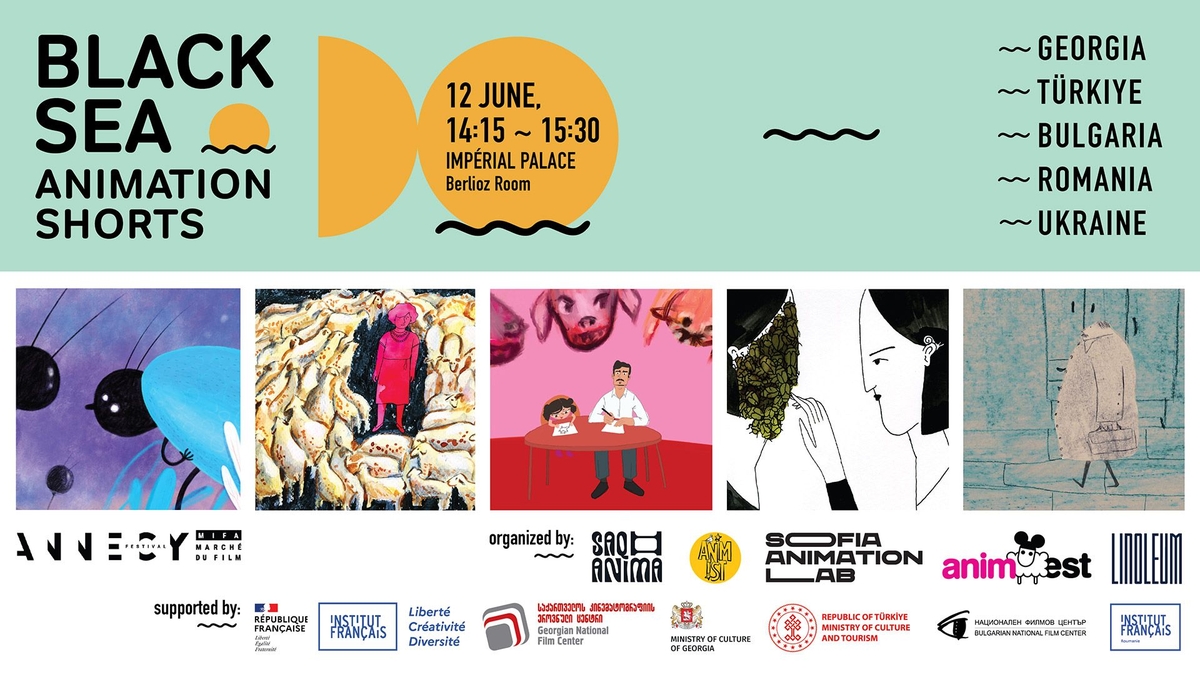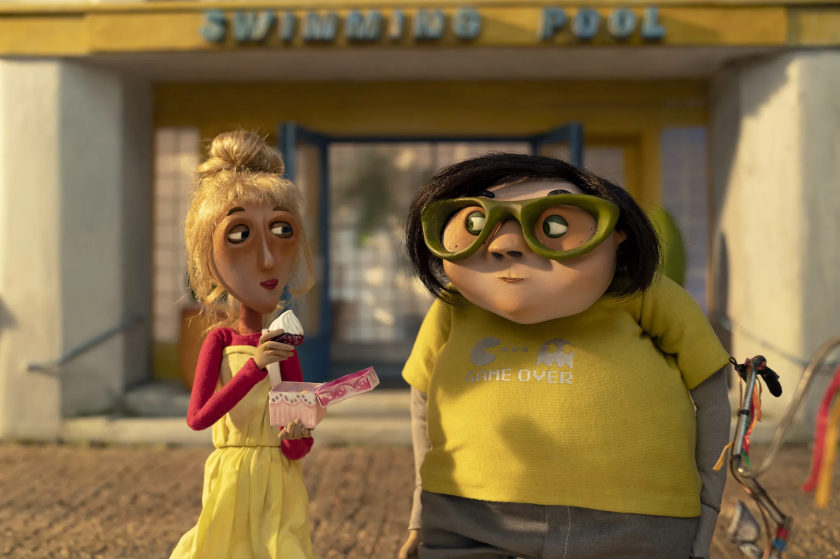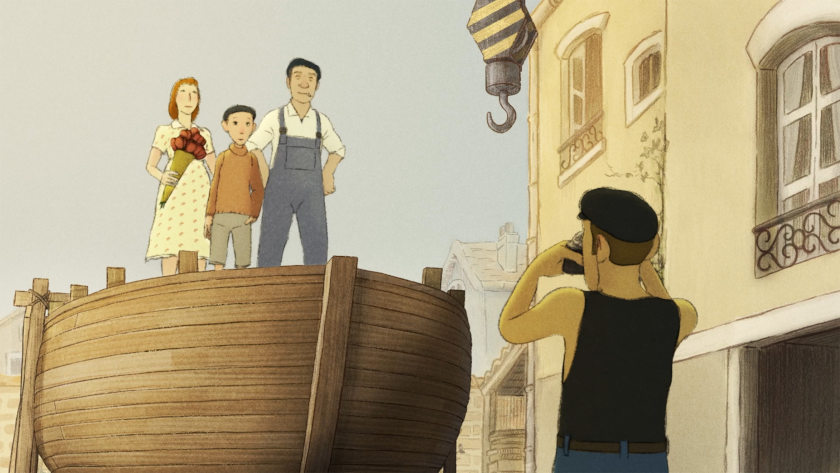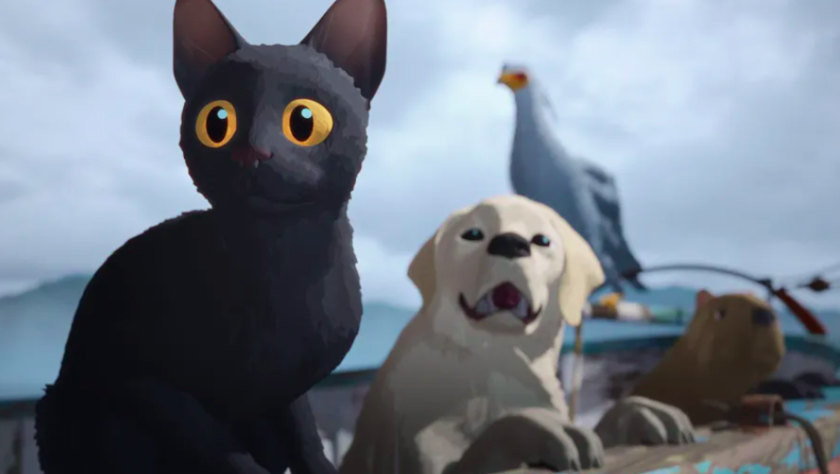The Island (2021) Review: Robinson Crusoe and the Land of Wonders
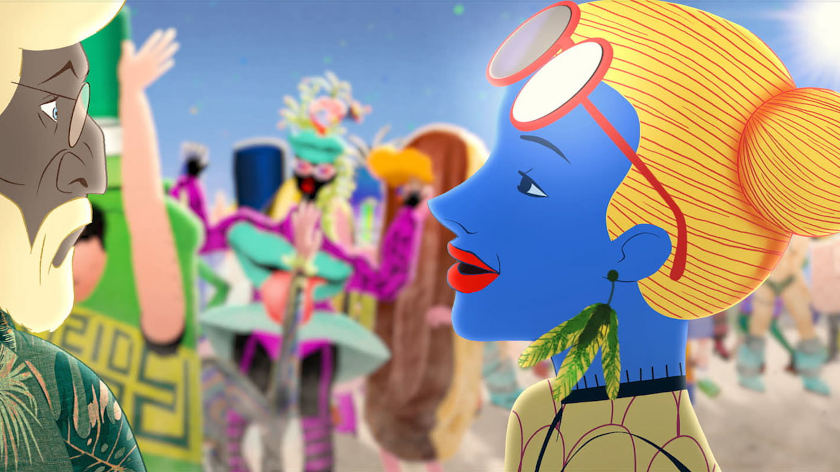
Anca Damian (Crulic: The Path to Beyond, Marona: A Fantastic Tale) can be as real as when she moves into psychedelia and symbolism. Her fourth animation feature 'The Island' (production: Production: Aparte Film, in co-production with Komadoli, Special Touch Studio, Take Fave, Minds Meet, and Amopix) ) is a meticulously told elegiac story, an almost meta-optimistic one, of our human loneliness, told with visual precision and musical string delight.
A Robinson Crusoe version with an iPad on a deserted island saves (or imagines he saves?) Friday again, obviously to use him for his own needs. Robinson Crusoe's own needs are shaped by consumerism (he craves for markets, supermarkets, and hypermarkets), while Friday still has to learn his first 'safe drinking water' phrase. Joined with a mermaid whose scales are full of plastic and household material, and a pirate who knows how to fight (and also knows how to grow legs out of nothing), they first define the psychedelically musical universe of 'The Island'.
The script by Anca Damian herself and Augusto Zanovello) is inspired by Gellu Naum's play 'The Island', as well as the eponymous concert by Ada Milea & Alexander Bălănescu (both sign the music's blue but still compassionate soundtrack). It is divided into main parts, itself being further subdivided into shorter chapters; its narrative arc is traditional -the abandoned hero needs to find allies in his own trip to happiness, and then he starts conducting his own trip to find the paradise -he mostly finds the land of Oz.
The mode of the exploitation is not traditional, though; each part and shorter chapter of the story is filled with different versions of the single motto 'We live an illusion, in seclusion'. Relics of civilization pop up everywhere before our very own eyes, in different sizes and shapes, as if we are meant to indulge in a last drop of eye-candy quality before our world collapses. The main character Robinson Crusoe (voiced by Alexander Bălănescu himself) is a good-for-nothing chap, apart from exploiting others -swiping left or right, zooming in and out his iPad screen. A doctor and a scientist, who has witnessed both diseases and treatments (from chemo to vaccines) for all the civilization's diseases, he only looks soft when his Edinburgh Mother Mary (Ada Milea) visits him and discovers how grown up (and still lonesome) he has been.
The journey to the paradise of all the characters -minus Friday, who is left behind to do some real work- is filled with sea monsters and an impressively pinkish-looking Grand Sea Menace (as another Granny and nature). A Babel Tower is also in the offerings (a menagerie of faces and shapes) chronicling the 1945 nuclear fate. Yet, if the Babel Tower offers the pinnacle of biblical narration (in a word full of the longing for the Lost Eden -and its temptations), it is the final third of the film that gets emotionally involved. Friday is released to get to his own promised refugee land -and what he finds there, along with his fellow refugees is both seducing and interesting.
Art director Gina Thorstensen along with Anca Damian have offered the audience 'a garden of delights' universe, where everything, from plastic to monsters to characters, is scaled in proportion -and with colors, Instagram influencers would love to showcase. While being psychedelic in intention, 'The Island' shares very little with René Laloux's 'Fantastic Planet' (one of the famous sci-fi animation examples), apart from the otherworldly topic itself. The Island universe is less cold and eerie, more empathetic, and more elegiac (and, of course, more musical) than the sci-fi animated masterpiece. The film is indeed immersive for its 2D characters to walk and dive into, yet the resulting feeling is of a film as a single tracking shot from one place to another - perhaps going to paradise is indeed a linear trip.
Sometimes more repetitive than engrossing, 'The Island' still commands the attention for its 82-minute screening space. Obviously, an arthouse indie animation offering, the impressive work done is evident throughout the film. It is still as realistic as our screen-filled encounters with contemporary situations; it is more of an engaging annotation and an informed commentary than an angst-filled account of contemporary politics, and it leaves you to fill the dots by yourself. An inviting work, in more ways than one.
Vassilis Kroustallis
The Island had its European premiere at Rotterdam International Film Festival and competes at the Annecy Festival.




